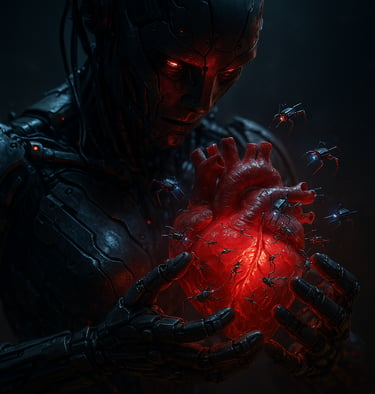Would You Trust AI With Your Life?
AI already helps drive cars and diagnose diseases. But would you trust it with life-or-death decisions? Let’s weigh the risks, realities, and what trust in machines really means.
FORUM CATEGORIES
6/12/20251 min read


We already rely on AI for everything from route planning to medical suggestions. But when it comes to life-or-death decisions, would you trust an artificial mind with your fate?
Imagine this: you're in an autonomous car, speeding toward an unavoidable accident. The AI must choose—swerve left into a wall, likely harming you, or veer right into pedestrians. It makes a choice in milliseconds. But who programmed its priorities?
AI systems are trained on data, and that data reflects the values (and flaws) of their human creators. Algorithms don't "think" the way we do—they calculate probabilities. In medical diagnostics, AI can outperform human doctors in image analysis. Yet, many patients would still prefer the intuition and human touch of a physician, especially in complex cases involving emotion and nuance.
The question isn’t just about capability—it’s about trust. Trust involves transparency, accountability, and ethical frameworks. Would you trust an AI if you knew how it made decisions? If it had a track record of success? Or would your instincts still crave a human hand at the wheel?
As AI continues to grow in responsibility—managing traffic, triaging emergency cases, guiding drones—the line between "tool" and "authority" becomes blurred. Some argue that with enough oversight and fail-safes, trusting AI could actually reduce human error and save more lives.
But others fear that once we hand over control, we may never get it back. When machines make life-altering decisions, who is accountable? The engineer? The company? The algorithm?
This debate goes beyond technology. It taps into our deepest fears—and hopes—about the future of control, responsibility, and humanity. So we ask again: would you trust AI with your life?
Let us know in the comments. Your view might just shape how we build the next generation of intelligent machines.
Connect
Join our community for AI discussions and updates.
Contacts
Engage
© 2025. All rights reserved. Privacy Policy Terms and Conditions About Us
